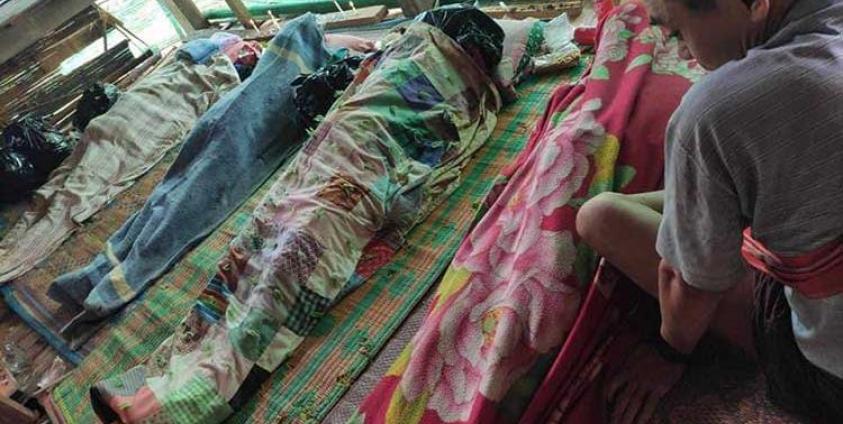Local residents and the KNU have reported that the Junta’s Air Force used ultra-destructive cluster bombs, the subject of an international prohibition, in four villages located within Hpapun District, a territory of the KNU's 5th Brigade.
The treaty banning the weapons was first agreed in May 2008 and entered into force on 1 August 2010. The Convention prohibits all use, stockpiling, production and transfer of cluster munitions, primarily because of the indiscriminate harm they cause civilians.
Cluster bombs are deliberately designed to have maximum effect over a wide area and are notorious for maiming civilian victims for decades after the conflict has ended.
On September 6, the Karen National Liberation Army (KNLA), the armed wing of the Karen National Union (KNU), along with joint forces, launched a raid and successfully captured the Khay Pu camp belonging to the Military Council in Hpapun district. Subsequently, on the following day, the military bombed villages where civilians reside.
A source on the ground stated, "The airstrikes conducted by fighter jets targeted not the KNU offices, but the villages where people reside. The day after their camp was captured, these areas were bombed with cluster bombs like this."
In their statement on September 13, they expressed opposition to the use of jet fighter airstrikes and internationally banned cluster bombs, as well as the indiscriminate firing of artillery shells and small arms at civilian and military targets without distinction, while also calling for immediate international action.
Global support for the convention to ban cluster bombs Human Rights Arms Advocacy Director Mary Wareham noted, has been adopted by 112 countries are now bound by its provision and 12 others are signatories.
According the KNU 5th Brigade, on September 7, villages in Hpapun district, including Thay Thu Thee village in Khay Pu village tract, Kaw Yaw Baw Hta village in Ler Mu Plaw village tract, Htee Kaw Htar village in Nar Koe Khee village tract in Dweiloe township, and Ta Ma Htaw village in Pae Kae village tract, were subjected to cluster bomb attacks, with these munitions weighing over 500 pounds each
According to reports from both the KNU and local residents, fighting continued in Hpapun district until the second week of September. Furthermore, in a September 3 statement by the Karen National Union (KNU), it was revealed that there had been 143 clashes in August.
In Hpapun district, ongoing clashes persist between the Junta the joint forces of the KNU's armed wing, the Karen National Liberation Army (KNLA). During the month of August, the Military Council troops fired a total of 96 artillery shells, while two warplanes dropped four bombs, resulting in the tragic loss of one resident's life and injuries to four others.
According to the KNU, during the clashes that occurred in August, the Military Council suffered a total of 88 fatalities, which included a captain, and 57 individuals were wounded. On the side of the KNLA, there were 5 fatalities, and 26 individuals sustained injuries.







